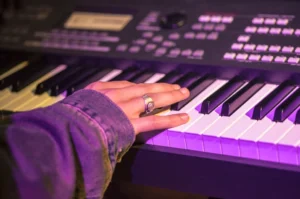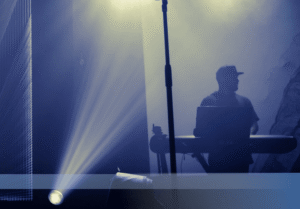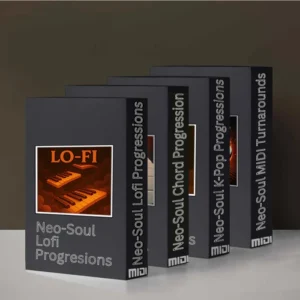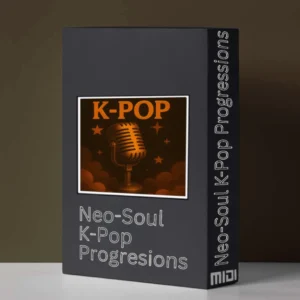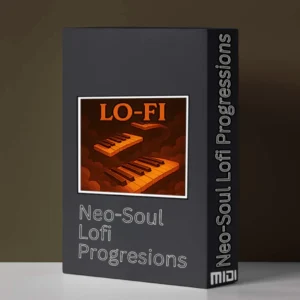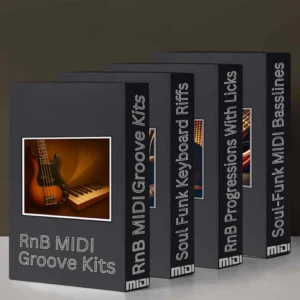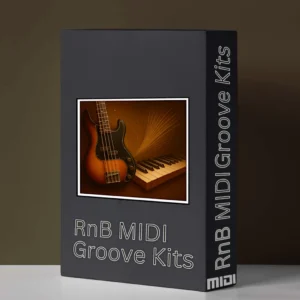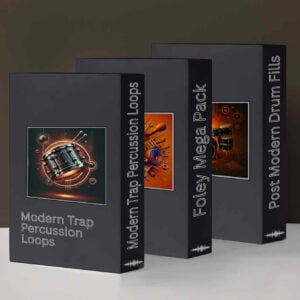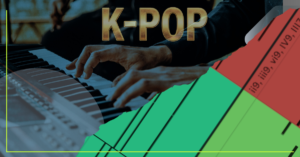
Send Us A Message
>
Collaborating with Influencers: The Key to Boosting Your Music Sales


Matt Crowe
In the ever-evolving landscape of the music industry, marketing and promotion play crucial roles in an artist’s success. With the rise of digital media, traditional methods of promotion have taken a backseat, making way for innovative strategies such as influencer marketing. Collaborating with influencers has become a powerful tool for musicians looking to boost their sales and expand their reach. This article explores how working with influencers can enhance your music sales and provides practical tips for executing successful influencer collaborations.
Understanding Influencer Marketing
Influencer marketing involves partnering with individuals who have a significant following on social media and can influence their audience’s opinions and behaviors. Influencers come in various sizes, categorized as mega, macro, micro, and nano based on their follower count. Mega influencers have millions of followers, while nano influencers have a smaller but highly engaged audience.
The benefits of using influencers for music promotion are manifold. Influencers can introduce your music to new audiences, create buzz around your releases, and lend their credibility to your brand. Their authentic engagement with followers can translate into genuine interest and increased music sales.
Identifying the Right Influencers
Selecting the right influencers is critical to the success of your campaign. Look for influencers whose audience demographics align with your target market. Tools like HypeAuditor and social media platforms’ built-in analytics can help you analyze an influencer’s engagement rates and audience insights.
Relevance is key; ensure the influencer’s content style and values align with your brand. An influencer who shares your musical genre or has a history of promoting similar artists will probably resonate more with their followers. Tools like Social Blade and Influencity can assist in finding and vetting potential influencers.
Building Effective Relationships with Influencers
Approaching influencers requires a thoughtful and personalized strategy. Make a good first impression by showing genuine interest in their work. When reaching out, be clear about your expectations, including the deliverables, compensation, and timelines.
Negotiating terms is an essential step. Be transparent about your budget and what you can offer, whether its monetary compensation, free tickets, or exclusive merchandise. Establish clear communication channels and collaboration guidelines to ensure both parties are on the same page throughout the campaign.
Creating Engaging Campaigns
The success of your collaboration hinges on creating engaging and authentic content. There are various types of influencer campaigns suitable for music promotion:
- Song Reviews and Reactions: Influencers can review or react to your latest release, providing their audience with an honest opinion.
- Music Video Features: Partner with influencers to feature your music in their videos or vlogs, reaching their engaged viewers.
- Live Performances and Q&A Sessions: Host live performances or Q&A sessions with influencers to interact directly with their audience.
- Behind-the-Scenes Content: Share exclusive behind-the-scenes footage of your music production process, giving fans a closer look at your creative journey.
- Craft compelling content that resonates with both the influencer’s audience and your target market. Ensure the content is authentic and reflects your brand’s identity.
Leveraging Social Media Platforms
Each social media platform offers unique opportunities for music promotion. Understanding the best practices for each can maximize your campaign’s impact:
- Instagram: Utilize Instagram Stories, IGTV, and Reels for short, engaging content. Collaborate on posts and use hashtags to increase reach.
- YouTube: Create long-form content such as music videos, interviews, and live performances. Leverage YouTube Shorts for quick, catchy clips.
- TikTok: Take advantage of TikTok’s viral nature by participating in trends and challenges. Encourage influencers to create content using your music.
- Twitter: Engage in real-time conversations, share updates, and promote your music with the help of influencers who can amplify your message.
- Utilize platform-specific features to enhance your promotional efforts and drive engagement.
Measuring Campaign Success
To gauge the effectiveness of your influencer campaign, track key performance indicators (KPIs) such as reach, engagement, conversions, and sales. Tools like Google Analytics, Hootsuite, and Sprout Social can provide valuable insights into your campaign’s performance.
Analyze the data to understand what worked and what didn’t. Adjust your strategies based on the feedback and performance metrics. Continuous optimization is essential to improving the effectiveness of your influencer collaborations.
Case Studies and Examples
Looking at successful influencer collaborations can provide valuable insights. For example, Lil Nas X’s collaboration with TikTok influencers for the promotion of “Old Town Road” played a crucial role in the song’s viral success. Similarly, Billie Eilish’s strategic use of YouTube and Instagram influencers helped her build a loyal fanbase.
These examples highlight the importance of aligning your music promotion with the right influencers and creating content that resonates with their audience.
Challenges and Considerations
While influencer marketing can be highly effective, it’s not without challenges. Authenticity is crucial; collaborations that feel forced or inauthentic can backfire. Ensure that the influencer genuinely likes your music and can promote it authentically.
ROI can be difficult to measure. While increased sales and streams are clear indicators, the long-term benefits of brand recognition and loyalty are equally important. Be prepared for potential misalignments in expectations and address them through clear contracts and communication.
Legal and contractual considerations are also important. Ensure that all collaborations comply with disclosure guidelines and copyright regulations. Draft clear contracts outlining the terms, deliverables, and compensation to avoid misunderstandings.
Maximizing Long-Term Benefits
Building long-term relationships with influencers can provide ongoing benefits. By nurturing these relationships, you can create a network of brand advocates who continuously support and promote your music. Regularly collaborate with these influencers and keep them engaged with exclusive content and updates.
Evolve your influencer strategy to stay relevant. As trends and platforms change, be adaptable and open to new opportunities for collaboration.
Conclusion
Collaborating with influencers can significantly boost your music sales and expand your reach. By understanding the dynamics of influencer marketing, selecting the right partners, creating engaging content, and continuously optimizing your strategies, you can harness the power of influencers to elevate your music career. Embrace this modern marketing approach as part of a broader promotional strategy to achieve sustained success in the music industry.
References
More Posts
-
Sale!
Neo-Soul MIDI Chords Bundle
Rated 5.00 out of 5$147.00Original price was: $147.00.$85.00Current price is: $85.00. Add to cart -
Sale!
Neo-Soul K-Pop Progressions
$55.00Original price was: $55.00.$47.00Current price is: $47.00. Add to cart -
Sale!
Neo-Soul Lo-Fi Progressions
$41.00Original price was: $41.00.$36.00Current price is: $36.00. Add to cart -
Sale!
Soulful Groove MIDI Bundle
Rated 5.00 out of 5$133.00Original price was: $133.00.$85.00Current price is: $85.00. Add to cart -
Sale!
RnB MIDI Groove Kits
$57.00Original price was: $57.00.$43.00Current price is: $43.00. Add to cart -
Sale!
Modern Percussion Mega Bundle
Rated 5.00 out of 5$134.00Original price was: $134.00.$94.00Current price is: $94.00. Add to cart

